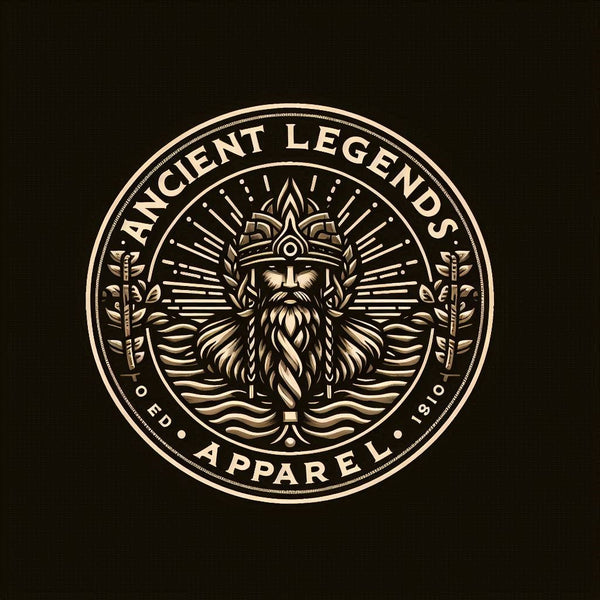Top 10 Roman Empire You’ve Never Heard Of
Karl FShare
INTRODUCTION
Within the annals of history, the Roman Empire stands out as a testament to human ambition, grandeur, and the power of societal organization. Its rise and fall influenced world history in countless ways, yet the empire also wove the threads for countless myths and legends. Behind the relentless march of legionnaires and the towering architectural marvels are narratives of the obscure, unusual, and fascinating stories that punctuated Roman existence. In this exploration, we will venture into the shadows of the Roman Empire to unearth ten lesser-known Roman legends that have stood the silent test of time.
ORIGIN AND CULTURAL CONTEXT
The Roman Empire's extensive influence on history stems from Rome's origins, imbedded in mythology itself. According to legend, Rome was founded by the demigods Romulus and Remus, the sons of Mars, the god of war. This supernatural origin imbued Rome with divine favour and instilled a predilection for weaving mystic narratives. Gods, demigods, beasts, and warriors populated Roman myths, their tales reflecting insights about Roman society and cultural practices. The empire’s embrace of both plebeian folklore and patrician pantheon demonstrates a universality that may account for the lasting perseverance of these legends.
THE LEGEND OR STORY
Among the mystic tales, one rarely echoed is the legend of Janus, whence January derives its name. As god of beginnings, endings, transitions, and duality, Janus was often depicted with two faces — one glancing forward and one looking back. Prodigiously revered by the Romans, Janus was invoked at the start of every ritual before other deities to ensure a successful transition. Another intriguing story is of Fortuna, the goddess of luck. The Wheel of Fortuna, a colossal revolving wheel, was symbolic of the capriciousness of luck in life.
Warrior legends take us to Publius Horatius, or simply Horatius, a Roman officer who challenged three Etruscan antagonists to single combat to protect Rome, earning him eternal honor. Lest we ignore the monsters, the realm of Roman beast legends encompasses the tale of the Taraxippus, an apparition of a dark horse that terrified the horses during races in the Circus Maximus, causing numerous accidents.
INTERPRETATIONS AND SYMBOLISM
Interpreting these legends, we see Janus reflecting the Roman valorization of transition and change, personifying an acknowledgement of Roman expansion and transformation. The Wheel of Fortuna symbolized the fortune's fickleness, a fatalistic view of life where man was the plaything of divine forces.
Horatius being lauded immortal for his selfless bravery, carries the Roman virtue of 'Virtus', the essence of the Roman ideal man. The Taraxippus, more than just a ghost story, might symbolize the unpredictable danger that lurked amidst public celebrations, serving as a dark metaphor for the underside of Roman society.
COMPARISONS IN OTHER CULTURES
Across cultures and through centuries, similar comparisons are prevalent. In Greek mythology, Janus finds resemblance in Hermès, the god of transitions. The Wheel of Fortuna might remind one of Buddhism's Wheel of Life, an embodiment of life's transient cycles. Horatius's heroism resonates with tales of brave champions such as Hercules and Achilles from Greek myths, or Beowulf from Anglo-Saxon lore. The Taraxippus is reminiscent of Ireland's mythological water horse, the Kelpie, a homicidal equine spirit known to lure onlookers to their deaths.
MODERN REFERENCES AND POP CULTURE
These Roman legends have subtly ingrained themselves into modern references and pop culture. Janus has been referenced in various forms of literature and movies, often personifying duality. Fortuna, the ever-fickle, has become an integral part of gambling lexicon. The story of Horatius has been praised in poetry like Lays of Ancient Rome by Thomas Babington Macaulay. The Taraxippus, intriguingly, has found likenesses in the many supernatural equine creatures of popular fantasy literature and film.
LEGACY AND LASTING MYSTERIES
These legends, while perhaps unfamiliar, maintain a haunting presence that forever remind us of the mythos pervading Roman history. They encapsulate beliefs, fears, and values that served as the bedrock of Roman society. Their lasting mysteries evoke continual fascination, with excavations and archaeology attempting to unlock more secrets of these tales.
Despite the ardent flames of time consuming much of these ancient narratives, their ash whispers, embedding themselves into the future. If we listen carefully, we can still hear the echos of Janus looking ahead at the nascent New Year; the fleeting spins of Fortuna's wheel; the standoff at the Tiber Bridge with Horatius, and the chilling gallops of the Taraxippus. These legends persist, embodying the grandeur, valor, danger, and duality that underscored the Roman Empire. Its empire now dust and marble, its words written in the stars, Rome lives: In myths and histories... and mythic histories yet to be told.
